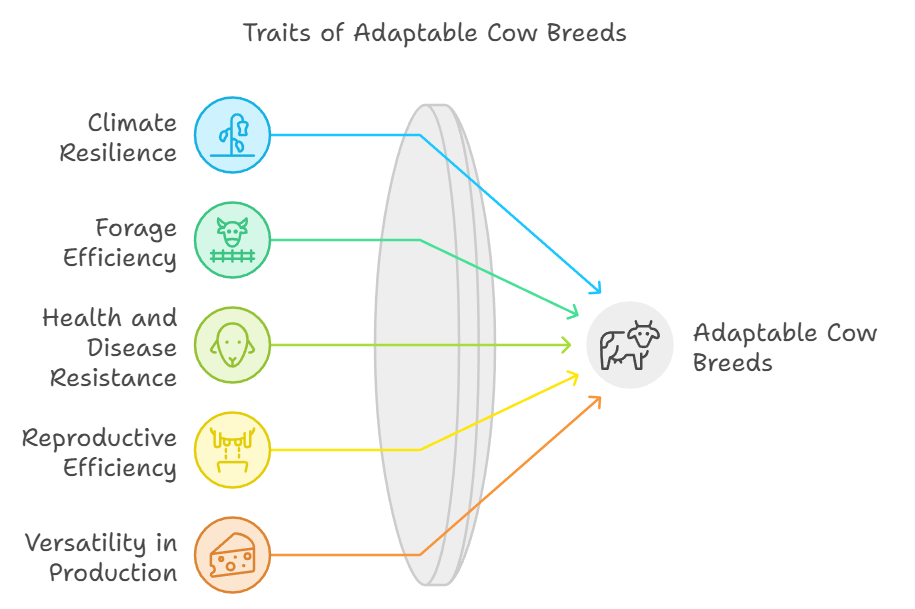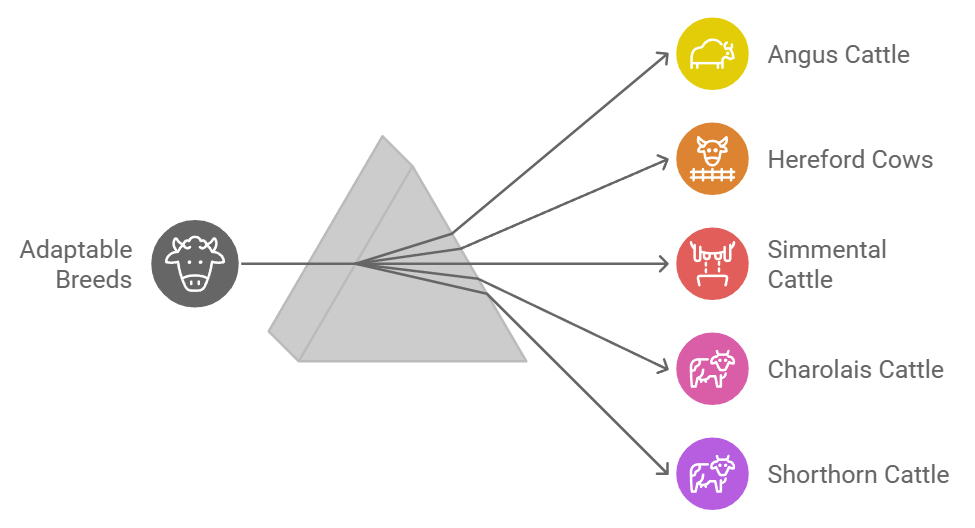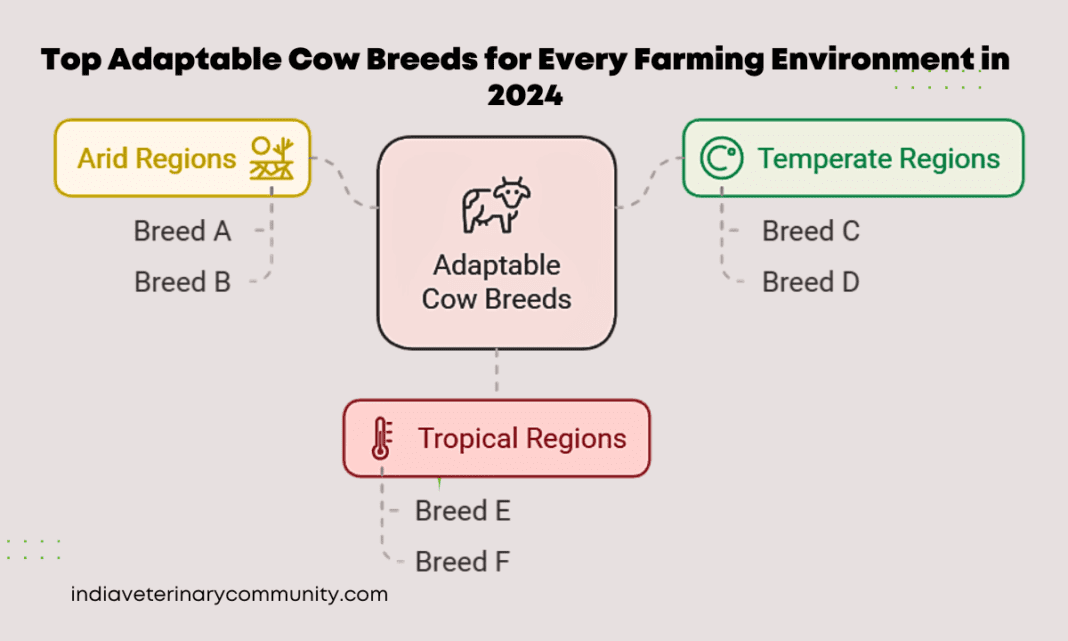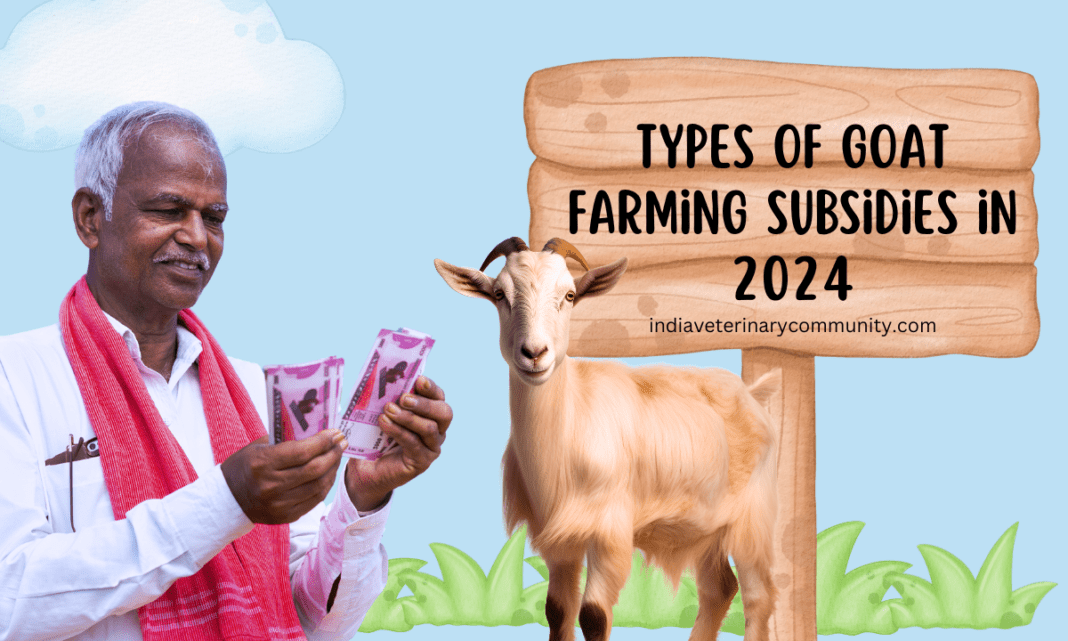Have you ever wondered which cow breed can handle your farm’s unique challenges?
Whether you’re dealing with scorching summers, chilly winters, or unpredictable weather, choosing the right adaptable cow breed is super important for your farm’s success. In 2024, more and more farmers are looking for resilient and versatile cattle that can thrive in different environments without losing productivity.
From dairy powerhouses to beef champions, adaptable cow breeds offer the flexibility and reliability needed to keep your farm running smoothly all year round. Let’s find out which breeds could be the perfect fit for your farming setup!
What Makes a Cow Breed Adaptable?

So, what exactly makes a cow breed adaptable? It’s a mix of several key traits that allow these cows to thrive in various conditions.
- Climate Resilience: Adaptable breeds can handle a wide range of weather, from blazing hot summers to freezing cold winters. This resilience keeps your cows healthy and productive, no matter what the weather brings.
- Forage Efficiency: They can make the most out of different types of pasture and fodder. This means you don’t have to spend extra on specialized feed, saving you money in the long run.
- Health and Disease Resistance: These cows naturally resist common bovine diseases, meaning fewer vet visits and lower medical costs. Healthy cows are happier and more productive!
- Reproductive Efficiency: Consistent calving rates in different environments ensure your herd grows steadily. This is crucial for expanding your farm without unexpected setbacks.
- Versatility in Production: Whether you’re into dairy, beef, or both, adaptable breeds can meet your specific production goals. This flexibility lets you adjust based on market demands or personal preferences.
Understanding these traits helps you make smart decisions when selecting the right breed for your farm. It’s not just about picking a cow; it’s about choosing a partner that will support your farming journey through all kinds of challenges!
Also Look : Procedure to Start Dairy Business : From Dream to Cream
Top Adaptable Dairy Cow Breeds

When it comes to dairy farming, adaptability is a game-changer. Here are some of the top adaptable dairy cow breeds that can help you maximize milk production while handling diverse farming environments.
- Holstein-Friesian: These cows are the giants of the dairy world, known for their high milk production. What’s impressive is their ability to adapt to different climates, making them a favorite among farmers everywhere.
- Jersey: Smaller but mighty, Jerseys produce rich, creamy milk perfect for making cheese and butter. They thrive in both warm and cool environments, offering great versatility for various farming setups.
- Guernsey: Resilient to environmental changes, Guernseys handle different climates with ease. Their excellent milk yield and high butterfat content make them a valuable addition to any dairy farm.
- Brown Swiss: Hardy and disease-resistant, Brown Swiss cows are perfect for farms looking to minimize health-related issues. Their adaptable feeding needs allow them to thrive on different types of forage, boosting their productivity.
- Ayrshire: Efficient milk producers with strong foraging abilities, Ayrshires are great for farms with diverse pasture options. Their adaptability ensures consistent milk production, no matter the season.
Choosing the right dairy breed can significantly impact your farm’s efficiency and profitability. These adaptable dairy cows not only boost milk production but also bring resilience to your farming operations.
Top Adaptable Beef Cow Breeds

Beef production needs cows that can grow well and handle various environmental stresses. These are some of the top adaptable beef cow breeds that excel in different farming conditions.
- Angus: Angus cattle are the go-to for quality beef. Their hardiness lets them thrive in different climates, and their excellent meat quality makes them a favorite among beef producers.
- Hereford: These cows are fantastic foragers and adapt well to different environmental conditions. Their ability to efficiently convert forage into high-quality beef makes them a valuable asset on any beef farm.
- Simmental: Versatile and strong, Simmentals are suitable for both milk and beef production. Their adaptability ensures they perform well in various farming systems, providing flexibility for farmers.
- Charolais: Known for their large size and impressive growth rates, Charolais cattle adapt well to different feeding systems and climates. Their size and efficiency make them ideal for beef production.
- Shorthorn: Dual-purpose by nature, Shorthorns offer good adaptability and efficient growth rates. Their versatility makes them a great choice for farms looking to maximize both meat and milk production.
These adaptable beef breeds not only enhance meat quality but also offer the resilience needed to maintain consistent production levels, no matter the environmental challenges.
Dual-Purpose Adaptable Cow Breeds

If you’re looking to get the best of both worlds with dairy and beef production, dual-purpose breeds are the way to go. These cows provide milk and meat while maintaining adaptability across various farming environments.
- Simmental: Balancing milk production and beef quality, Simmentals adapt to multiple farming systems. Their robust nature ensures they thrive in different climates, making them a versatile choice for farmers.
- Red Poll: Efficient in both milk and meat production, Red Polls thrive in diverse environments. Their adaptability and dual-purpose nature make them a valuable addition to any mixed farming operation.
- Dexter: This small-sized breed is perfect for mixed farming. Dexters adapt well to various climates and pasture types, offering flexibility and efficiency in both milk and meat production.
- Devon: Known for their strong adaptability to different pasture types, Devons provide excellent milk and beef quality. Their resilience ensures consistent performance across varied farming conditions.
- Belted Galloway: Also called “Belties,” these cows are hardy and versatile. They adapt well to different climates and forage types, providing reliable milk and high-quality beef.
Dual-purpose breeds like these offer farmers the flexibility to cater to both dairy and beef markets, optimizing resources and increasing overall farm profitability.
Factors to Consider When Choosing an Adaptable Cow Breed

Selecting the right adaptable cow breed involves more than just picking a popular name. Here are some essential factors to consider to ensure the breed fits your farm’s specific needs.
- Climate Compatibility: It’s crucial to match breed traits with your local weather patterns. For example, if you experience extreme temperatures, choose a breed known for its climate resilience.
- Feed Availability: Ensure the breed can efficiently use the available forage on your farm. Some breeds thrive on specific types of pasture, while others are more flexible.
- Farm Management Practices: Align breed needs with your farming style and resources. Consider factors like herd size, labor availability, and farm infrastructure when making your choice.
- Economic Goals: Balance milk production, beef quality, and overall profitability. Understanding your primary income sources can help you select a breed that meets your financial objectives.
- Breed Availability: Access to reputable breeders and quality stock in your region is essential. Choosing a breed that’s readily available ensures you can maintain and expand your herd without significant delays.
Considering these factors will help you make an informed decision, ensuring that your chosen breed not only adapts well to your environment but also supports your farm’s long-term goals.
Benefits of Raising Adaptable Cow Breeds
Investing in adaptable cow breeds brings a multitude of benefits that can enhance your farming operations. Here’s why raising adaptable breeds is a smart move for any farmer.
- Increased Resilience: Adaptable breeds perform better during extreme weather conditions, reducing the risk of livestock losses and maintaining productivity.
- Reduced Maintenance Costs: With lower veterinary and feed costs due to disease resistance and efficient forage use, adaptable breeds help you save money in the long run.
- Enhanced Productivity: These breeds ensure consistent milk and beef production regardless of environmental changes, providing a stable income stream.
- Sustainability: Versatile and efficient cattle contribute to more sustainable farming practices, promoting environmental stewardship and resource conservation.
- Long-Term Profitability: Greater adaptability leads to stable income streams and reduced risk, ensuring your farm remains profitable even in fluctuating market conditions.
Raising adaptable cow breeds not only strengthens your farm’s resilience but also supports sustainable and profitable farming practices, setting you up for long-term success.
Conclusion
Choosing the right adaptable cow breed is a game-changer for any farmer aiming to thrive in diverse and ever-changing environments.
These resilient breeds not only withstand various climatic challenges but also ensure consistent productivity, whether you’re focused on dairy, beef, or both.
By selecting breeds like Holstein-Friesian, Angus, or Simmental, you’re investing in a sustainable and profitable future for your farm.
Ready to enhance your farming operations with adaptable cow breeds? Start by assessing your farm’s specific needs and explore these top breeds to find the perfect match for your unique environment.
Share your experiences or questions in the comments below – let’s grow together!
FAQs : Adaptable Cow
Why should I choose an adaptable cow breed for my farm?
Choosing an adaptable cow breed can make your farming life easier and more profitable. These breeds require less specialized care, can thrive on different types of feed, resist common diseases, and maintain steady milk or beef production even when the weather is unpredictable.
Are adaptable cow breeds more expensive to purchase?
The cost of adaptable cow breeds can vary depending on the breed and your location. While some adaptable breeds might have a higher initial investment, their resilience and lower maintenance costs often make them more cost-effective in the long run.




